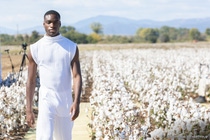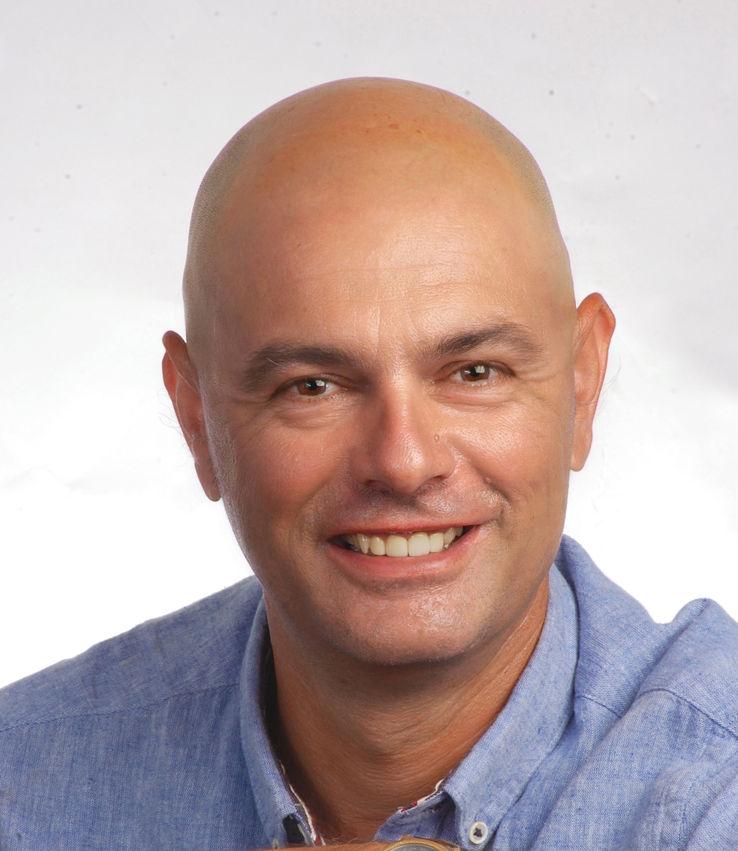Agriculture
From Field to Runway
Sustainable Fashion Starts with a Seed and a Farmer.
Despite cotton being the fabric of our lives, how often, when we pull on a pair of jeans or a shirt, do we think about who grew the cotton crop and how?
The world grows 27 million tons of cotton every year – led by China, India, the US and Brazil. It is a natural fabric that sustains 32 million growers – almost half of them women – and benefits over 100 million families across 80 countries in five continents.
In the far north-east of Greece in East Macedonia lies Thrace, a region that borders Turkey and Bulgaria. For centuries, this province has been an abundant farming community that has flourished in the warm Mediterranean climate.
In addition to tobacco, wheat, honey and cherries, the area is known by locals for its cotton fields. It is here that most of the nation’s crop is cultivated which supplies 85% of the EU’s cotton fiber.
Within this sun-filled, verdant area are centuries of history, visible to travelers in its architecture, culture, and food. The farms, too, have held the lives of families for generations.
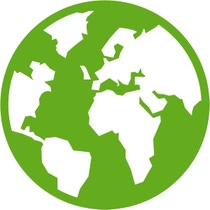
Komotini
Komotini is a city in the region of East Macedonia and Thrace with 54,272 inhabitants and is located in the northeastern Greece.
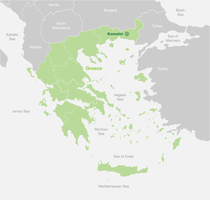
Please click on the map to find out more about Komotini.
Did you know this about cotton agriculture?
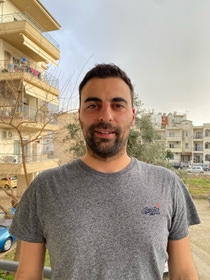
Thodoros Lefis, Greek cotton farmer
Farmers at the heart of the fashion industry
Thodoros Lefis grows cotton here. He is the third generation of his family to farm their land near Komotini, the region’s main city. Annually, he produces 300 tons of some of the best quality, long-fiber length cotton which produces the softest and finest of garments. He is a pioneering thinker who seeks practical ways to grow crops in a more sustainable, climate-smart, ethical way, and to earn a premium for doing so.
Thodoros wants to see an increase in consumer awareness, and appreciation of Greek cotton, which fits well as society becomes ever more conscious of a product’s environmental and social impact, its origins, and the ethics of its supply chain.
Partnership for a sustainable cotton value chain
This societal aspiration is driving Thodoros and four of his farming neighbors, to collaborate with Komotini’s longstanding cotton supply chain to form a fully sustainable, traceable and brandable cotton supply chain. The farmers have teamed up with the local ginner who separates the cotton seed and fiber in the cotton balls and gives a premium to the farmer for their quality, sustainably produced cotton. The partnership starts with the purchase of high-quality cotton seed that the farmers grow, through to the designers and manufacturers of the clothing sold at the end of the chain.
Blockchain embedded into the sustainable cotton supply chain to build consumer trust
Crucially to build consumer trust, blockchain is embedded into a sustainable cotton supply chain – BASF’s Certified Sustainable FiberMax® (CSF) – which makes it one of the most ground-breaking agricultural examples of everything that happens from soil to shop.
From every seed planted, to every t-shirt sold, a digital footprint, or transaction, of each practice, process and person involved is recorded. What’s central to making the program work is that farmers receive a premium for their cotton sales, which rewards them for their work, whilst assuring consumers of the fairness, provenance, and sustainable production practices.
For the farmers, this is important. All of them use sustainable practices recording everything that they do, when and where. Some CSF farmers are experimenting with minimal soil disturbance tillage in order to contribute to soil carbon sequestration as well as no-spray ecological zones and precision farming techniques.
Another of the farmers involved in the CSF Program, George Fasoulas, said: “I am passionate about growing my cotton responsibly. I care for the soil, to keep the fertility level healthy and stable. That is why, for the past six years, I have grown cotton following the sustainable cotton program. We need to care more about our land and practices - such as crop rotation, cover crops and soil analysis - which contribute to healthy soils. I am proud to produce high quality cotton in a responsible and sustainable way, leaving the land in good shape for the next generation. We owe it to our children.”
I am passionate about growing my cotton responsibly. I care for the soil, to keep the fertility level healthy and stable.
Key to the sustainable cotton program’s success is the assurance of the cotton’s sustainability, and that farmers are fairly rewarded.
The cotton value chain is complex, and farmers are often the forgotten partner
“The cotton value chain is complex, and farmers are often the forgotten partner,” says Abhijeet Sharma, Digital Ecosystem Manager at BASF, who, until joining BASF in 2017, worked with some of the most progressive global tech firms. “Until this program, farmers have been largely and technologically ignored,” despite pioneering farmers like Thodoros practicing progressive, sustainable farming methods that minimize water consumption, inputs and ensure year-on-year environmental and biodiversity improvements.
“This is where the CSF value chain is so important,” he adds, “it will create a blockchain network that will benefit the whole supply chain, where every input or practice that farmers use, is automatically recorded from connected devices such as variable rate input applicators, yield monitors and tractor fitted GPS systems.”
Abhijeet says: “This blockchain is like a ‘green passport’ – or a green NFT (non-fungible token) - which will give buyers reassurance that, by scanning a QR code, they are making informed choices and are part of a growing community of ethical consumers.”
One of the guests, Galateia Laskaraki, Editor in Chief of Marie Claire in Greece, summed up the value of this supply chain perfectly.
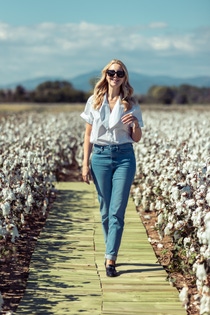.jpg)
We can’t talk about fashion sustainability if we don’t understand where it comes from. This is a very special project that translates into the maintaining and preserving of tradition, and preserving and creating jobs, especially for the younger generation to stay in the villages and rural regions of Greece.
Further she said: "We spend a lot of time, energy and money in order to buy proper, better food for our family, perhaps we will start thinking about fashion differently, perhaps buying better quality clothes and not so many clothes. We will never stop wanting to express ourselves through fashion. Fashion sustainability is about love. Loving what you have and loving the world.”
An upgraded, climate-smart ecosystem can help the growing of healthier plants with less need for chemicals and lower costs of production, improving a farmer’s income and the rural community’s wellbeing.
The greatest hope of the farmer Thodorus is, that, one day, the label on a t-shirt will trace the cotton that it was made from back to his farm in northern Greece. This is now wholly possible and would make him very happy indeed.
Published February 14th, 2023
For media inquiries or to repurpose the story, please contact: julian-niclas.prade@basf.com or annegret.liebscht@basf.com.


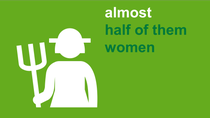
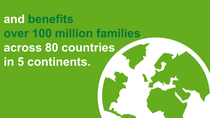


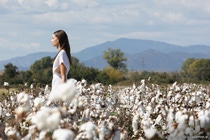
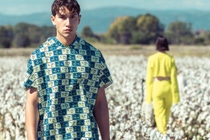.jpg)
